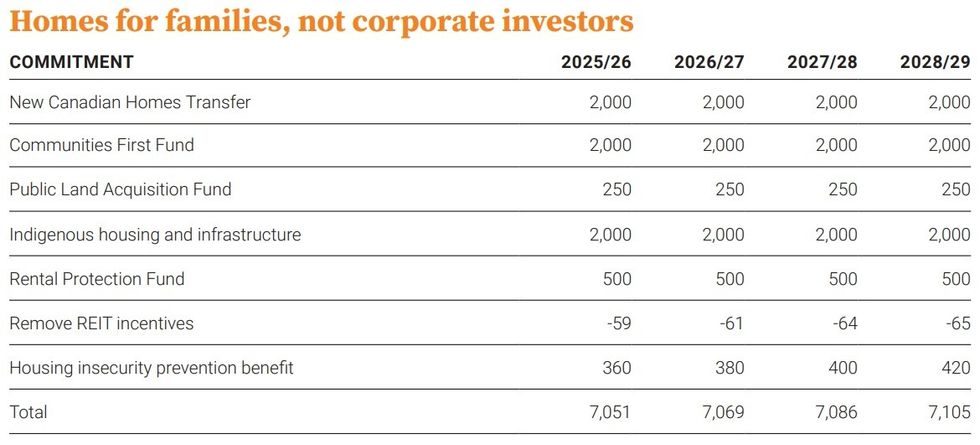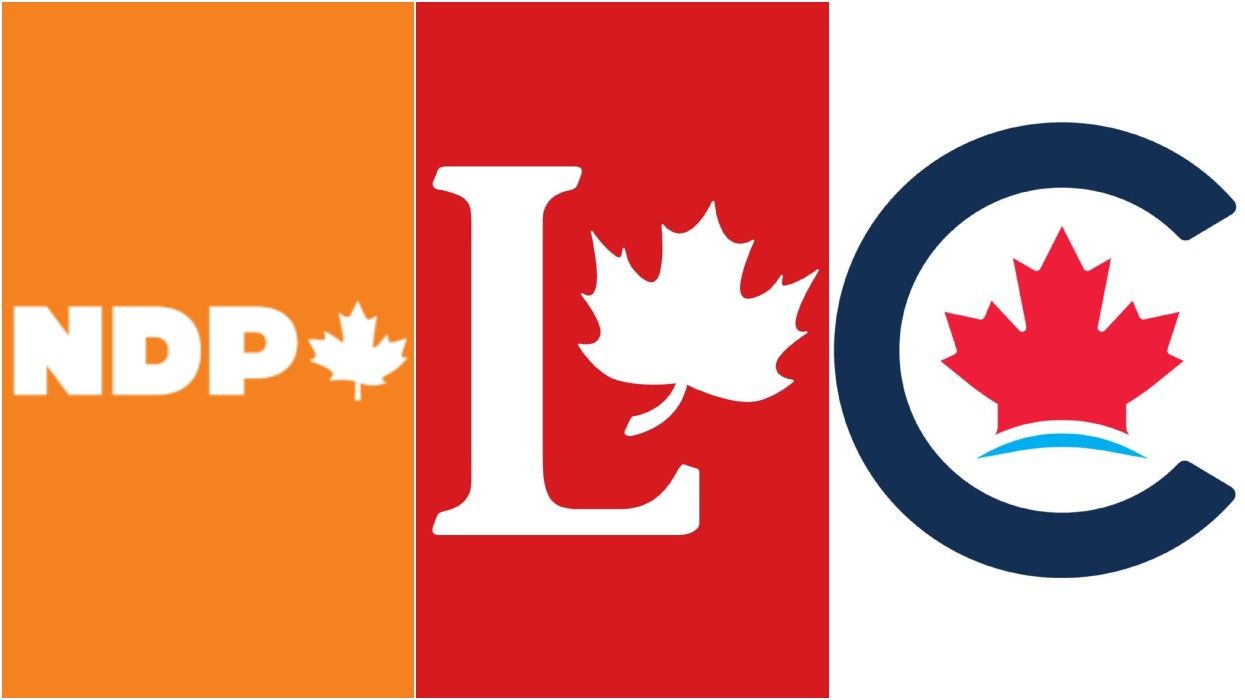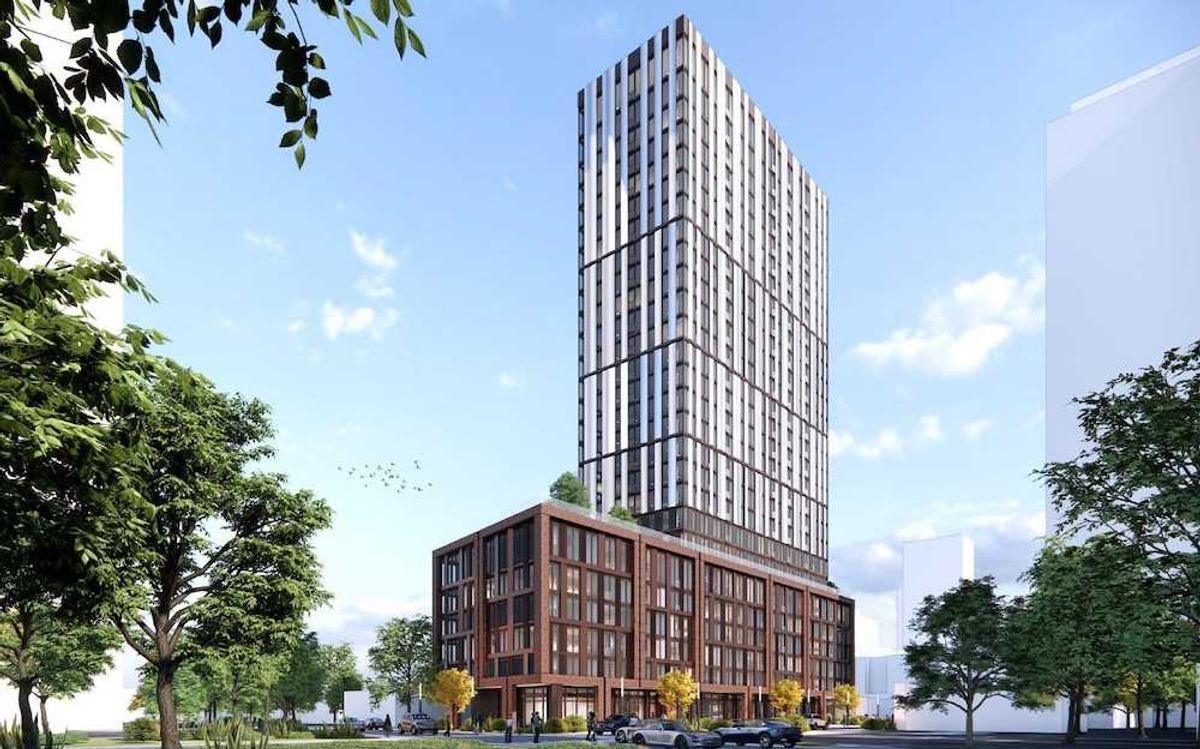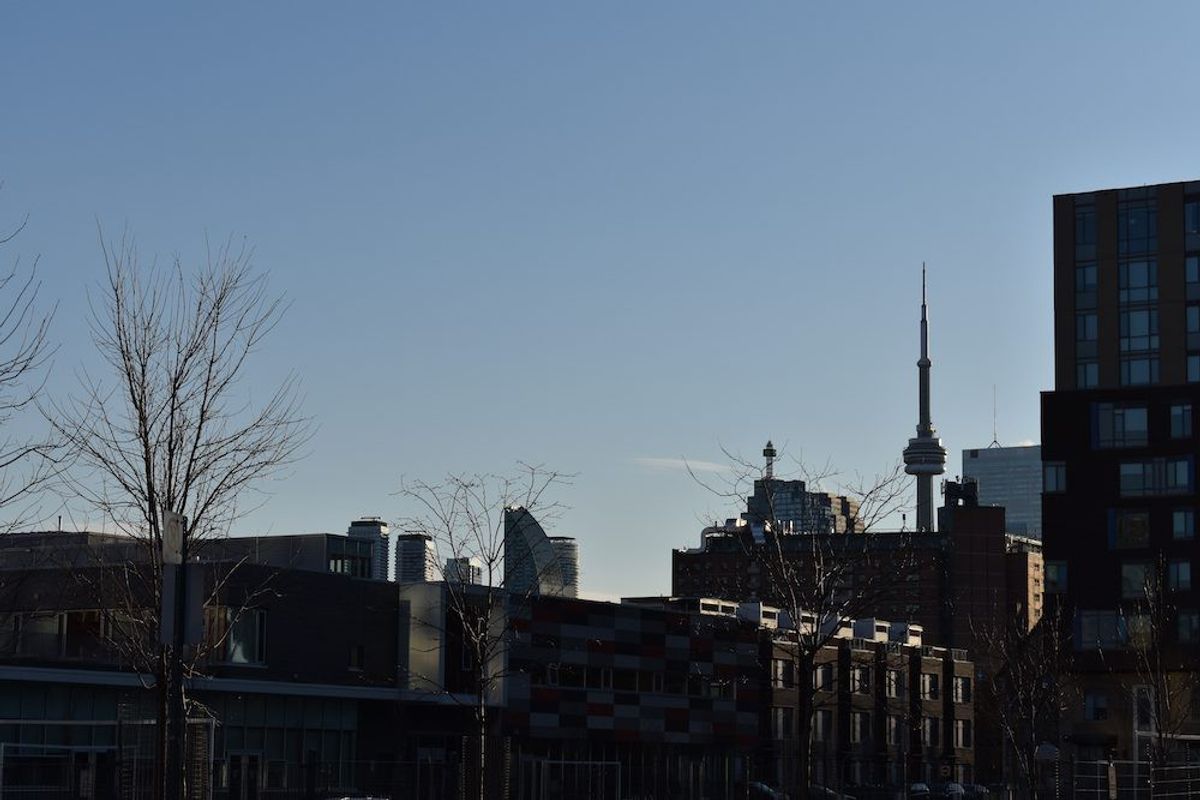[Editor's Note: This article was updated on April 22 after the Conservatives published their full costed platform.]
Unfortunately for Canadians, it's now accepted practice for parties to publish their full costed platforms after advance voting has already begun.
Mark Carney of the Liberal Party of Canada (LPC), Pierre Poilievre of the Conservative Party of Canada (CPC), Jagmeet Singh of the New Democratic Party (NDP), and Yves-François Blanchet of Bloc Québécois (BQ) participated in leaders' debates on April 16 and April 17, ahead of advance voting on April 18, 19, 20, and 21.
Bloc Québécois released their costed platform on April 18, while the NDP and Liberals published their costed platforms on April 19, followed by the Conservatives on April 22 after advance voting had closed.
The Liberals and Conservatives remain the two parties that are most likely to form government. Below is how much their housing promises will cost. (Although the NDP are unlikely to form government, they have a national platform, unlike the Bloc Québécois, and thus we've included them as well.)
Liberal Party
The Liberal platform includes a bit over $129 billion in new measures across four years. The platform is split into four major planks: Unite, Secure, Protect, and Build. The last plank, Build, includes all the new measures related to housing and affordability, with the new measures totaling to around $36.8 billion across four years.
The Liberals have pledged to cut income taxes for the middle class by reducing the marginal tax rate on the lowest tax bracket by 1%, which could save dual-income families up to $825 a year. The Liberals say this change will come into effect on July 1, 2025 and this is the biggest line item in the affordability and housing portion of their platform, costing between $4.2 billion in 2025-2026 before increasing steadily to $6.1 billion for 2028-2029.
The second-largest line item is as it relates to Build Canada Homes (BCH), a new federal entity that the Liberals have pledged to create that would get the government "back into the business of homebuilding." The Build Canada Homes entity would act as a developer and manager of affordable housing projects while partnering with private builders for construction. The entity would also acquire land for development and offer leases, and it is projected to eventually accrue costs of up to $2.99 billion.
Over the past year, an increasing amount of attention has been paid on the development charges that local governments levy on new construction in order to fund their infrastructure projects. The Liberals have pledged to cut these charges in half for multi-unit buildings, which developers estimate make up anywhere from 20% to 30% of the cost of a new home. For local governments, the federal government would then offset the amount with direct funding for infrastructure. This is expected to cost $1.5 billion a year.

Another tax cut the Liberals have promised is the GST for first-time homebuyers on homes up to $1 million, providing up to $50,000 in savings for those homebuyers. Since Carney's announcement in March, however, the Liberals now say they will also lower the GST on homes betweeen $1 million and $1.5 million, and the cut is expected to cost between $383 million and $413 million in the coming years.
Also previously announced was the Liberals' intention to reintroduce the Multi Unit Rental Building (MURB) tax incentive from the 1970s. This incentive allowed individual investors in rental buildings to claim depreciation and other costs against their personal income. The MURB tax incentive has been credited with producing approximately 200,000 rental units between 1974 and 1981 — it was ended in 1982 — and is expected to cost $132 million before increasing all the way up to $1.8 billion in four years.
Lastly, Carney and the Liberals have committed to increasing conversions of existing buildings into affordable housings. Calgary has been the biggest success story in North America when it comes to office conversions and although many office buildings across the country are potentially viable for conversion, no cities have seen the same level of conversions as Calgary, largely due to the financial viability. To faciliate more conversions, the Liberals are pledging to commit $138 million across four years.
Other promises the Liberals have made that have no stated costs include improving the transparency of the Housing Accelerator Fund, reviewing the mortgage market with the goal of introducing new options, simplifying building codes, and streamlining regulations for prefabricated and modular construction.
Full Platform (Web) | Full Platform (PDF) | Platform Costs (PDF)
Conservative Party
True to the Conservative Party's primary message of reducing government spending, their costed platform is framed differently than the other parties: as revenue gained and spending reductions. One of the biggest line items as it relates to housing is Pierre Poilievre's pledge to waive the GST on new homes under $1.3 million — for all buyers, not just first-time buyers like the Liberals' pledge. This is expected to cost between $1.8 billion and $2.0 billion a year, for a total of $7.7 billion across four years.
The Conservatives also intend to scrap the Underused Housing Tax, which will reduce revenue for the government by between $93 million and $108 million a year — $409 million across four years. (These items are listed under the "Revenue" section of their platform, where negative figures indicate spending or revenue loss.)
On the other side of the ledger, the Conservatives have earmarked $12.8 billion in revenue across four years from "additional homes built." The platform does not clearly outline how building additional homes would generate revenue. In fact, elsewhere in the platform the Conservatives pledge to "Reward cities that permit over 15% more homebuilding each year with additional federal funding, while reducing infrastructure funding proportionally for cities that miss their targets."

A different section of their platform then details spending changes to existing programs. Here, positive numbers indicate cuts, and the biggest line item is Poilievre's pledge to end the Housing Accelerator Fund, which they say they will reduce spending by a total of $2.6 billion across four years. It's unclear how they arrived at this number, however, as approximately $4.36 billion of the $4.4 billion in funding — the original $4 billion plus $400 million from Budget 2024 — is now tied up in agreements with local governments. Not all the money has been delivered, however, so the Conservatives could theoretically back out of agreements.
Similarly, the Conservatives say they will cut spending on the Canada Housing Infrastructure Fund by $1.5 billion across four years and reduce operating spending by $3.7 billion via the sale of 15% of federal buildings and land that will be identified within the first 100 days. (The Trudeau government has previously outlined plans to buy more land and lease them out for housing development.) They have also pledged to reduce development charges by reimbursing local governments 50% of every dollar in development charges that they cut, which will cost $11 billion across four years (compared to $6 billion under the Liberal platform).

Other housing-related promises that have no stated costs include requiring municipalities to allow high-density housing around federally-funded transit stations and to "pre-permit" housing in order to receive new federal funding. Like the Liberals, the Conservatives have also pledged to simplify building code regulations. Interestingly, the Conservatives also say they will "axe the GST on new rental housing," which the Liberals already did in 2023 — albeit many years after they originally pledged to. Additionally, they have also pledged to "Remove the requirement to report the sale of your home to the CRA" and plan to increase the efficiency of the CMHC, both in terms of processes and spending.
Full Platform (Web) | Full Platform (PDF) | Platform Costs (PDF)
New Democratic Party
The NDP platform includes a bit over $28 billion dedicated towards housing, split relatively evenly across four years.
Their biggest commitment is to replace the existing Housing Accelerator Fund with two programs: Canadian Homes Transfer and the Communities First Fund, which could cost a grand total of $16 billion across four years. The new Canadian Homes Transfer program would reward cities that allow and build townhouses and apartments quickly and near transit, with a target of 20% non-market housing in every neighbourhood. The Communities First Fund would then support provinces in building the infrastructure they need to support growth.
Another big line item is $8 billion across four years towards Indigenous housing and infrastructure, but specifics were not outlined in the platform released today. The NDP would also introduce a new Housing Insecurity Prevention Benefit that would cost $1.6 billion over four years and go towards helping those experiencing homelessness find homes.

The NDP also previously announced that they would expand the Canada Rental Protection Fund that was introduced by the Trudeau-led government last year. The Canada Rental Protection Fund provides money to non-profits to acquire existing affordable rental housing, shielding them from rent hikes and redevelopment. The NDP's platform allocates a total of $2 billion across four years.
Another program that will see a significant amount of funding is the Public Land Acquisition Fund, which will be used to acquire land that would be set aside for affordable housing. Homes built on these lands would also be rent-controlled — the NDP is committing to national rent control — and they plan on financing new construction wiht a new Community Housing Bank that would partner with non-profit developers, co-ops, and Indigenous communities.
Emphasizing their long-held anti-corporate stance, the NDP says it will also ban "predatory financial landlords" from buying existing purpose-built rental buildings and social housing buildings. These "predatory financial landlords" include REITs, hedge funds, and private equity funds, and would exclude private landlords and property managers, the NDP says. This includes removing preferential tax treatment for REITs that currently exist, which would reduce costs by $249 million over four years.
Other related promises that include no stated costs include requiring strong tenant protections from other levels of government in order to access federal funding, as well as prohibiting renovictions and demovictions.
Full Platform (Web) | Full Platform (PDF) | Platform Costs (PDF)





















